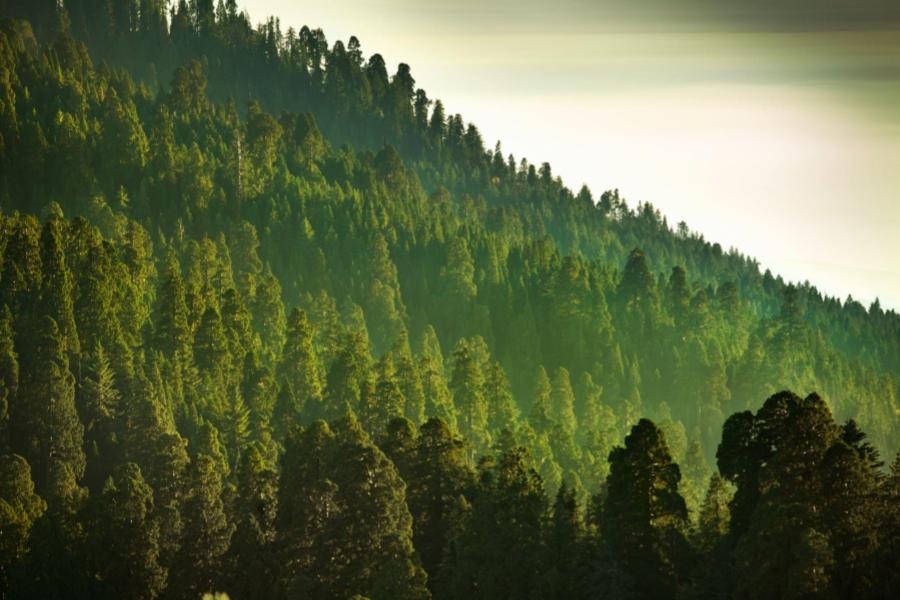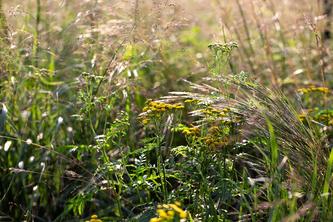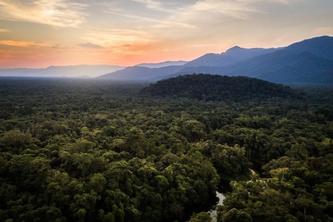
- MINNEAPOLIS/ST. PAUL (11/15/2023) — Research results recently published in Nature show that global forest lands could store enough carbon to soak up one-third of annual fossil fuel emissions for decades to come. The results highlight the critical importance of forest conservation, restoration and sustainable management in moving toward international climate targets.
“Promoting diverse forests will help us maximize their potential to scrub CO2 out of the air and store it in tree trunks and soils,” said study co-author Peter Reich, a professor in the Department of Forest Resources at the University of Minnesota who was part of the core organizing and writing group for this work.
Ten scientists, including Reich and led by the Crowther Lab at ETH Zurich, recruited an international team of hundreds of researchers to build an integrated assessment using a comprehensive range of approaches, including vast ground-sourced data and satellite datasets.
They found:
- Due to ongoing deforestation and degradation, the total amount of carbon stored in forests is about 328 gigatonnes below its natural state. Much of this land is used for extensive human development including urban and agricultural land, however; outside of those areas, researchers found that forests could capture approximately 226 more gigatonnes of carbon if they were allowed to recover.
- Approximately 61% of this potential can be achieved by protecting existing forests, so they can grow to maturity.
- The remaining 39% can be achieved by reconnecting fragmented forest landscapes through sustainable ecosystem management and restoration.
“Most of the world’s forests are highly degraded. In fact, many people have never been in one of the few old-growth forests that remain on Earth,” said lead author Lidong Mo, a researcher at ETH Zurich. “To restore global biodiversity, ending deforestation must be a top priority.”
“We need to focus on what restoration means to people,” said Thomas Crowther, senior author of the paper and a professor at ETH Zurich. “Restoration is not about mass tree plantations to offset carbon emissions. Restoration means directing the flow of wealth toward millions of local communities, Indigenous populations and farmers that promote biodiversity across the globe. Only when healthy biodiversity is the preferred choice for local communities will we get long-term carbon capture as a by-product.”
The study authors stress that responsible restoration is a fundamentally social endeavor. It includes countless actions such as conservation, natural regeneration, rewilding, silviculture, agroforestry and all other community-driven efforts to promote biodiversity. It requires equitable development, driven by policies that prioritize the rights of local communities and Indigenous people.
However, forests cannot be a substitute for cutting fossil fuel emissions. If emissions continue to rise, the study warns, then ongoing droughts, fires and warming will threaten forests and limit their ability to absorb carbon. Reducing emissions and protecting nature are both urgently needed.
About the College of Food, Agricultural and Natural Resource Sciences
The University of Minnesota’s College of Food, Agricultural and Natural Resource Sciences (CFANS) strives to inspire minds, nourish people, and sustainably enhance the natural environment. CFANS has a legacy of innovation, bringing discoveries to life through science and educating the next generation of leaders. Every day, students, faculty, and researchers use science to address the grand challenges of the world today and in the future. CFANS offers an unparalleled expanse of experiential learning opportunities for students and the community, with 12 academic departments, 10 research and outreach centers across the state, the Minnesota Landscape Arboretum, the Bell Museum of Natural History, and dozens of interdisciplinary centers. Learn more at cfans.umn.edu.
- Categories:
- Agriculture and Environment
- Environmental health





